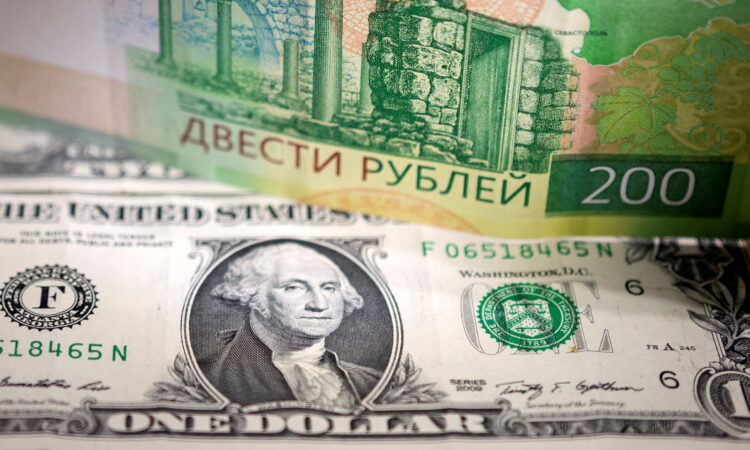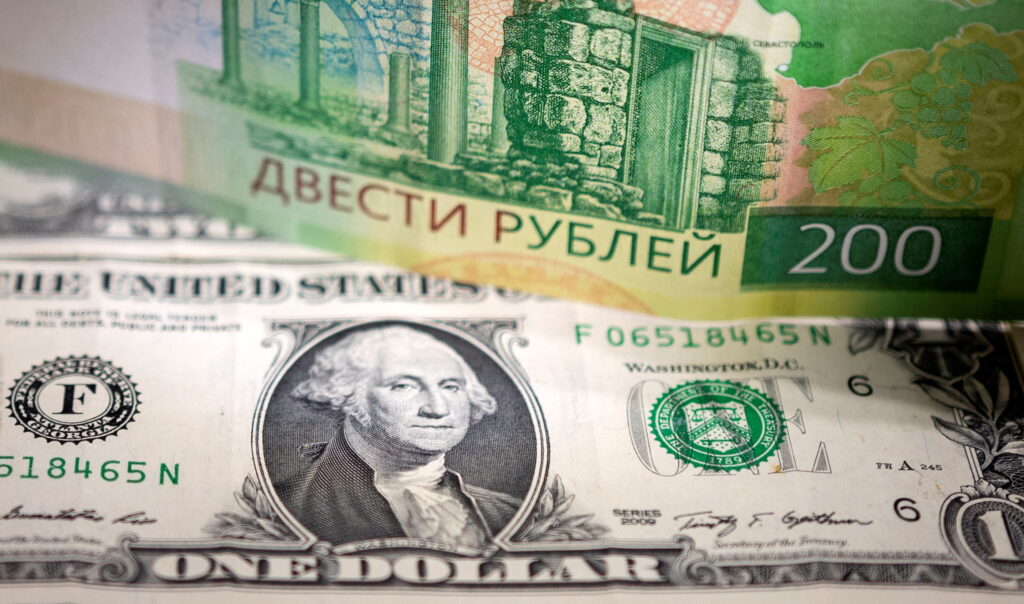
Speaker Mike Johnson introduced three bills on April 17 to provide aid to Ukraine, Israel, and the Western Pacific, and a fourth bill that includes provisions of the REPO Act among other policies. The REPO Act would provide a legal basis for the transfer of Russian state assets in the United States to Ukraine to compensate for the damage Moscow has inflicted on Ukraine in its war of aggression. Ensuring Ukraine has the military and economic aid from the United States presented in the Ukraine aid bill is essential to US security interests in Europe. Approving the provisions of the REPO Act provides additional resources to Ukraine—not coming from the US taxpayer—to help Ukraine win this war and successfully rebuild its economy afterwards. Despite the views of some skeptics, this can be done without undermining the international financial system and the role the dollar plays in that system. Below we provide a sampling of expert evaluations of the REPO Act.
Stay updated
As the world watches the Russian invasion of Ukraine unfold, UkraineAlert delivers the best Atlantic Council expert insight and analysis on Ukraine twice a week directly to your inbox.
Ambassador Robert Zoellick, former President of the World Bank, former US Deputy Secretary of State, and former US Trade Representative: The REPO Act achieves elegant justice by using Russia’s own money to help Ukraine resist Putin’s brutal aggression. The REPO Act represents a rare combination: sound policy, good politics, and ethical values. Why would any American oppose that combination?
In a war of attrition, economic support is as vital as arms and ammunition. The REPO Act creates an opportunity for the Biden administration to press Europeans to use the assets of the Russian government to help Ukraine survive economically.
Philip Zelikow, Botha-Chan Senior Fellow at Stanford University’s Hoover Institution and former Counselor of the US Department of State: At this decisive hour in Ukraine’s war for survival, the REPO Act can finally start to mobilize the financial firepower that can help turn the tide. Enormous sums sit idle, helping no one. They will go back to the aggressor, or they will help the victims. The time has come to choose.
Some of the best international lawyers in the world have looked hard at this question. They find the REPO Act’s approach to be sound. And those who have actually analyzed the financial repercussions find positives, not negatives. So, the way is clear to act.
Eurasia Center events

Elina Ribakova, Nonresident Senior Fellow at the Peterson Institute for International Economics: It is a brave and principled act by the US Congress. It ensures that those who do not abide by the rules of the global financial architecture and economic cooperation should not be entitled to enjoy its benefits.
Ambassador Daniel Fried, Weiser Family Distinguished Fellow at the Atlantic Council and former State Department Coordinator for Sanctions Policy: Having started a war of aggression and national extermination against Ukraine, Russia should pay for the consequences. The REPO Act provides authority to the U.S. Government to use the Russian sovereign assets that it immobilized at the start of the full Russian invasion of Ukraine in February 2022 to benefit Ukraine. The purpose is the right one. Passage will strengthen efforts to build international support for taking more Russian sovereign assets to help Ukraine resist and rebuild.
Anders Åslund, Senior Fellow at the Stockholm Free World Forum: The REPO Act is an important precedent. It makes clear that military might is not right, but that Russia has to pay war reparations for all the damage it causes through military aggression. It shows the way forward for Europe so that it does the same. A violator of so many international laws must not have its property protected from due compensation. Ukraine needs huge funds for reconstruction and Russia must pay.
John E. Herbst is senior director of the Atlantic Council’s Eurasia Center and served for thirty-one years as a foreign service officer in the US Department of State, retiring at the rank of career minister. He was US ambassador to Ukraine from 2003 to 2006.
Further reading
The views expressed in UkraineAlert are solely those of the authors and do not necessarily reflect the views of the Atlantic Council, its staff, or its supporters.

The Eurasia Center’s mission is to enhance transatlantic cooperation in promoting stability, democratic values and prosperity in Eurasia, from Eastern Europe and Turkey in the West to the Caucasus, Russia and Central Asia in the East.
Follow us on social media
and support our work
Image: Russian Rouble and US dollar banknotes are seen in this illustration taken, February 24, 2022. REUTERS/Dado Ruvic/Illustration







